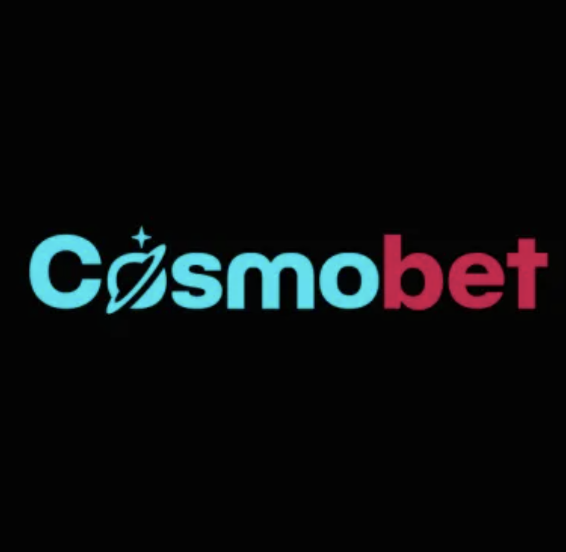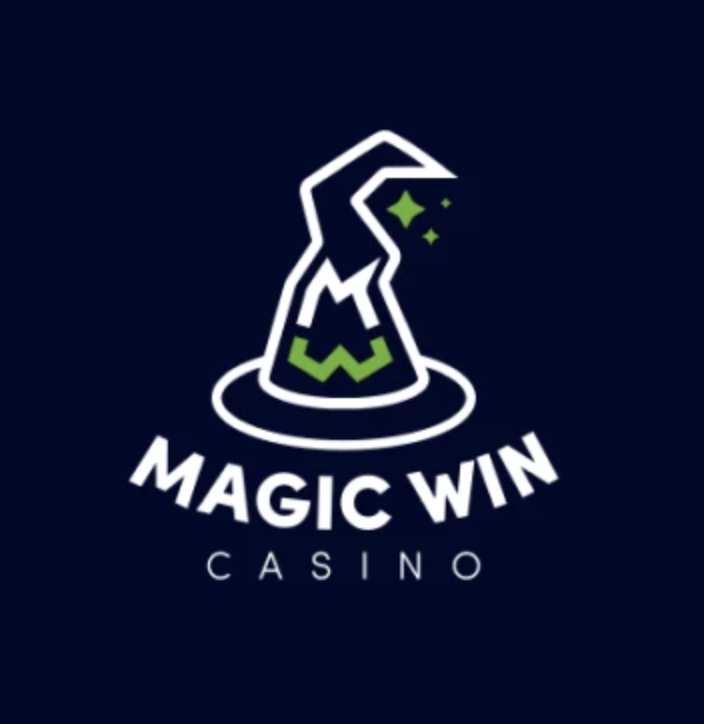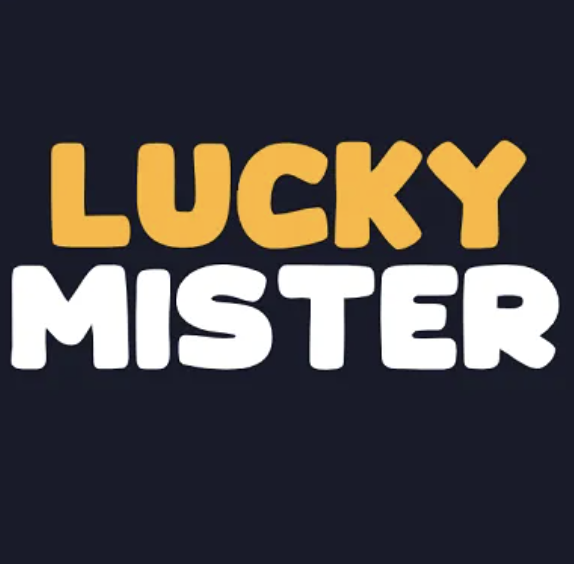Halloween Slots Myths Debunked: What Really Affects Odds

Halloween Slots Myths Debunked: What ACTUALLY Affects Your Odds (And What’s Pure Superstition)
Your buddy at work swears that Halloween is the best day of the year to play slots. “Casinos loosen the machines,” he says. “Everyone wins big on Halloween.”
Your cousin has a different system: she only plays at midnight because “that’s when the machines reset.” She won $500 once at 12:07 AM, so clearly she’s onto something.
The internet is full of advice: play machines near the entrance, avoid machines that just paid out, bet maximum to improve your odds, carry a lucky charm, wear red on Halloween…
Here’s the uncomfortable truth: 99% of gambling advice is complete nonsense.
List of All Non Gamstop Malta Casinos
🏅 Cosmobet
Cosmobet offers a vast game library and attractive crypto incentives, making it a top choice for diverse gaming experiences.
🏅 Velobet

- Welcome Bonus: 150% up to €500 + 70 Free Spins on the first deposit.
- Withdrawal Speed: Varies; e-wallets and cryptocurrencies offer faster processing.
- Unique Benefits:
- Over 70 game providers, offering a diverse gaming experience.
- Crypto-friendly platform with multiple payment options.
- Regular promotions and a user-friendly interface.
Velobet stands out with its extensive game selection and flexible payment options, appealing to a broad range of players.
🏅 Goldenbet
FreshBet Casino
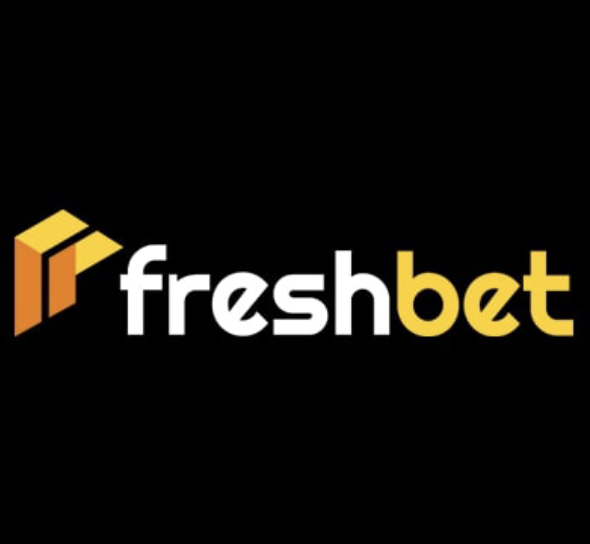
- Welcome Bonus: 100% up to €1,500 + 500 FS on your first three deposits.
CasinoJoy
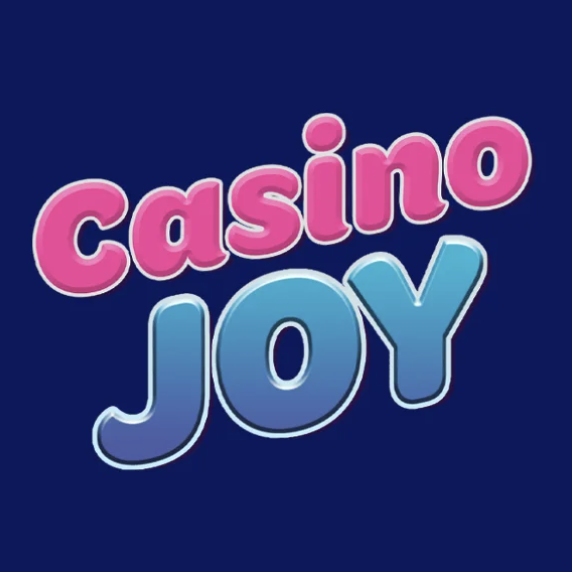
- Welcome Bonus: 450% up to €6,000 + 425 FS across the first four deposits.
CasinoJoy offers an extensive game library and generous bonuses, catering to both casual and high-roller players seeking variety and value.
1RED
SpinsHeaven
MagicWin
LuckyMister
I’ve spent 30 years studying casino mathematics and watching players lose money following superstitions they think are strategies. And I’m going to do something that might upset you: I’m going to destroy every gambling myth you’ve ever believed.
Why? Because false beliefs cost you real money. Every minute you spend looking for a “hot machine” is a minute you could spend playing a high-RTP game that actually gives you better value. Every dollar you waste on maximum bets because you think it improves your odds is a dollar you could have stretched further with optimal betting.
The truth is more powerful than superstition—and it might even be more profitable. Let’s separate fact from fiction, starting with the biggest Halloween gambling myth of all.
MYTH #1: “Halloween is a Lucky Day for Gambling”
The Claim: Holidays, especially Halloween, have special energy that makes you more likely to win.
The Reality: Slot machines use Random Number Generators (RNG) that produce millions of outcomes per second based on complex mathematical algorithms. These algorithms don’t have calendars. They don’t know what day it is. They cannot—literally, physically cannot—produce different results on October 31st than they do on March 15th.
Let me be crystal clear: The RNG in a slot machine does not care about Halloween.
It doesn’t care about Christmas, New Year’s, your birthday, or the full moon. It generates random numbers continuously, independent of any external factors. When you press the spin button, you’re simply telling the machine “record the random number that happens to be generated at this exact microsecond.” That number determines the outcome.
Where This Myth Comes From
So why does everyone think Halloween is lucky?
Confirmation bias. You remember wins on special days more vividly than losses. Your friend won $500 on Halloween last year—he’ll tell that story forever. The twelve Halloweens before that when he lost money? He forgot those.
Increased play volume. More people gamble on Halloween, which means mathematically, more jackpots are hit on Halloween—not because odds improved, but because more spins occurred. If 1,000 people play on a Tuesday vs 10,000 on Halloween, you’ll see 10x more jackpots on Halloween simply due to volume.
Marketing reinforcement. Casinos promote Halloween heavily, creating the illusion that it’s a special gambling day. They’re not lying—they’re just creating excitement to drive traffic. More traffic means more rake for the house, simple as that.
The bottom line: If you win on Halloween, congratulations—you got lucky. But you got lucky on a day that has the exact same odds as every other day. Planning your gambling around holidays is like planning your grocery shopping based on astrology—harmless fun, maybe, but completely irrelevant to outcomes.
MYTH #2: “Hot and Cold Machines Exist”
The Claim: Some machines are “hot” (paying out frequently) while others are “cold” (due to pay). If you find a hot machine, ride it. If a machine is cold, move to another.
The Reality: This myth fundamentally misunderstands how slots work.
Every spin on a slot machine is an independent event. The machine doesn’t remember previous spins. Winning three times in a row doesn’t make the fourth spin more or less likely to win. Losing twenty times in a row doesn’t make spin twenty-one “due.”
Think of it like flipping a coin. If you flip heads five times in a row, does that change the probability of the sixth flip? No—it’s still 50/50. Slots work the same way (though with more complex probability distributions).
But What About Streaks I’ve Seen?
You’ve definitely seen machines that seem hot. A slot hits three times in five minutes. Another sits silent for an hour.
This isn’t the machine being “hot” or “cold”—it’s variance in action.
Imagine flipping a coin 1,000 times. You’ll see streaks of 5-7 heads in a row just by pure randomness. You’ll see stretches of mostly tails. The coin isn’t “hot” or “cold”—you’re just observing normal variance patterns.
Slots are the same. A machine with 96% RTP and medium volatility will produce winning streaks and losing streaks purely by random chance. Those streaks mean nothing about future outcomes.
The dangerous trap: Players see a machine hit twice and think “It’s hot! I should stay!” They lose $200 chasing that “hot streak.” Or they see a machine go 30 spins without paying and think “It’s cold, I should move,” missing the jackpot that hits on spin 31 at the next player’s first spin.
The truth: There are no hot machines. There are no cold machines. There are only:
- High-RTP machines (good) vs low-RTP machines (bad)
- High-volatility machines (big swings) vs low-volatility machines (smaller, more frequent wins)
- Lucky players (random) vs unlucky players (also random)
Choose machines based on RTP and volatility that match your bankroll—not on whether the last three spins won.
MYTH #3: “Time of Day Affects Payouts”
The Claim: Slots pay better at certain times—usually midnight, 3 AM, or right before closing. The machine “resets” or the casino “loosens” slots during off-peak hours.
The Reality: RNGs run continuously, 24 hours a day, 365 days a year. They don’t have “reset” times. They don’t pay differently at midnight than at noon.
The mathematics don’t change based on what time your watch shows. A slot programmed to 96% RTP will return 96% at 9 AM, 3 PM, midnight, and 4:30 AM. Always. Forever.
Why People Believe This Myth
Player volume variation. Fewer people play at 3 AM. If you hit a jackpot at 3 AM, you’re one of maybe 50 people playing. That feels “special” and you attribute it to the time. If you hit the same jackpot at 8 PM when 500 people are playing, it feels less special—but the odds were identical.
Observation bias. If someone tells you “I always win at midnight,” they’re remembering their midnight wins and forgetting their midnight losses. Their actual results across all midnight sessions are probably average—but memory is selective.
The “fresh machine” feeling. Playing at off-peak hours means machines haven’t been touched recently. They feel “fresh” or “ready.” This is psychology, not reality. The RNG has been generating millions of random outcomes while the machine sat idle—the next spin isn’t any more or less likely to hit.
The lesson: Play when it’s convenient for you, when you’re well-rested and can make good decisions. Don’t schedule gambling around the clock chasing phantom time-of-day advantages that don’t exist.
MYTH #4: “You Can ‘Feel’ When a Jackpot is Coming”
The Claim: Experienced players develop intuition. They can sense when a machine is “ready to hit” based on sounds, patterns, or gut feeling.
The Reality: This is confirmation bias on steroids.
Your “gut feeling” is your brain trying to find patterns in randomness. Humans are pattern-recognition machines—we evolved to spot lions in tall grass, not to understand statistical independence. When we see randomness, our brains hallucinate patterns that don’t exist.
Here’s what happens:
- You get a “feeling” a machine will hit
- You play it
- If it hits: “See! I knew it! My intuition was right!”
- If it doesn’t hit: “Well, sometimes you’re wrong” or “I must have misread the signs”
You remember the hits (confirming your belief) and forget the misses (which would disprove it). This creates false confidence in a nonexistent ability.
The Danger of This Belief
Players who think they can “feel” jackpots coming will:
- Play longer than planned (“I feel it’s about to hit”)
- Bet more than budgeted (“This is the one”)
- Ignore their loss limits (“Just five more spins, I can feel it”)
- Rationalize bad decisions (“My intuition told me to”)
I’ve watched this belief destroy bankrolls. A player “feels” a jackpot coming, loses $500 chasing it, wins $100, and says “See, I was right!” They’re down $400 but convinced their intuition worked.
The truth: No one can predict random outcomes. Not you, not me, not professional gamblers with 50 years’ experience. If intuition worked in casinos, psychics would own Las Vegas. They don’t, because intuition doesn’t overcome mathematics.
What you CAN sense: When you’re playing emotionally instead of rationally. When you’re chasing losses. When you’re exceeding your budget. These are legitimate gut feelings worth heeding—they’re your rational brain trying to override your emotional brain.
MYTH #5: “Bigger Bets = Better Odds of Winning”
The Claim: Betting maximum increases your chances of hitting jackpots or getting better payouts.
The Reality: For most slots, bet size doesn’t affect RTP or odds.
A slot with 96% RTP at $1 per spin has 96% RTP at $5 per spin. The house edge remains constant. Bigger bets just mean you’re risking more money per spin—you’re not improving your odds.
The One Exception: Progressive Jackpots
Some progressive slots only award the jackpot if you bet maximum. In this specific case, betting less than maximum excludes you from the top prize.
Example: Megabucks requires max bet ($3) to qualify for the multi-million dollar jackpot. If you bet $1, you can still win regular payouts, but not the progressive jackpot.
Does this mean you should always bet max on progressives? Only if:
- The progressive jackpot is large enough to offset the reduced playtime from bigger bets
- You can afford the variance of maximum bets
- You actually want to compete for the progressive (life-changing money vs extended entertainment)
For most recreational players, betting maximum on progressives eats through bankrolls too quickly. You’d get more entertainment value from lower bets on regular high-RTP slots.
The Confusion About Denomination
People confuse bet size with denomination. It’s true that $1 slots often have slightly better RTP than penny slots—maybe 96% vs 94%. But this is about the game version, not about your individual bet size on that version.
Playing $5 per spin on a penny slot doesn’t give you $1 slot RTP. The game’s RTP is programmed into the software and doesn’t change based on what you bet.
The smart move: Choose the denomination with the best RTP that your bankroll can handle. Then bet an amount that gives you 200+ spins of playtime. If you have $200, that’s $1 per spin maximum—regardless of denomination.
MYTH #6: “Casinos Loosen Slots on Holidays”
The Claim: Casinos secretly adjust payout rates on holidays to attract customers and create excitement.
The Reality: This is illegal in virtually all regulated jurisdictions, and physically impossible in most modern slots.
Why This Can’t Happen
Regulatory requirements: Gaming regulators require casinos to get approval for any RTP changes. You can’t just flip a switch and make slots pay more on Halloween. The process involves:
- Submitting paperwork to gaming commission
- Getting chips reprogrammed by slot manufacturers
- Having regulators verify new chips
- Waiting for approval (often 30+ days)
This isn’t something you do for a one-day promotion.
Server-based gaming limitations: Even in jurisdictions that allow server-based RTP adjustments (rare), regulations typically require:
- 24-hour notice to regulators before changes
- Changes only during specific windows (not mid-day)
- Clear signage informing players of RTP changes
- Detailed logs of all adjustments
The economics don’t make sense: Casinos already have a mathematical edge on every game. They don’t need to “tighten” slots on regular days or “loosen” them on holidays. They make money through volume—the more spins, the more profit. Holidays bring volume naturally without manipulating RTPs.
Why It Feels True
You had a big win on Halloween and think, “The casino must have loosened this machine!”
More likely explanations:
- You got lucky (variance happens)
- You played longer because it was a holiday, giving more opportunities to hit
- You remember holiday wins more vividly than regular day wins
- More players = more jackpots observed = feels like machines are “looser”
The truth: Slots have the same RTP on Halloween as every other day. If you won, congratulations—but it wasn’t because the casino adjusted anything.
What ACTUALLY Affects Your Slot Odds

Enough myths. Let’s talk about the real factors that determine your results:
1. RTP (Return to Player)
This is the percentage of all money wagered that a slot returns to players over its lifetime. A 96% RTP slot returns $96 for every $100 wagered (on average, over millions of spins).
What you need to know:
- RTP ranges from 85% (terrible) to 99% (excellent) depending on the game
- Higher RTP = lower house edge = better for you
- RTP is long-term average; short-term results vary wildly
Where to find it: Most online slots list RTP in the game info/help section. Some brick-and-mortar casinos post RTP by denomination.
How to use it: Choose games with 96%+ RTP when possible. Avoid anything below 94%.
2. Volatility (Variance)
This measures how often and how much a slot pays out:
- Low volatility: Frequent small wins, rare big wins (consistent but modest)
- High volatility: Rare wins, but they’re big (boom or bust)
- Medium volatility: Balance between the two
What you need to know:
- Volatility doesn’t affect RTP (a 96% RTP game can be high or low volatility)
- Your bankroll should determine volatility choice
- Low volatility = longer playtime with same bankroll
- High volatility = bigger swings, need larger bankroll to survive dry spells
How to use it: Small bankroll? Choose low volatility. Large bankroll and chasing big wins? High volatility might suit you.
3. Bet Size (Only for Progressive Jackpots)
As mentioned earlier, bet size only matters if the game requires maximum bet to qualify for certain prizes (usually progressive jackpots). Otherwise, it just determines how fast you burn through your bankroll.
4. Game Selection
Not all slots are created equal. Some are objectively better deals than others.
Generally better:
- Classic 3-reel slots often have higher RTP
- Games from reputable providers (NetEnt, Microgaming, Playtech)
- Slots with published, verifiable RTP
Generally worse:
- Branded slots (movie/TV themes) often have lower RTP to cover licensing costs
- Slots with massive progressive jackpots often have lower base game RTP
- Games that don’t publish RTP (assume the worst)
5. Wagering Requirements (For Bonus Play)
If you’re playing with bonus funds, wagering requirements essentially act as a hidden cost that reduces your effective RTP.
Example: You have $100 bonus with 40x wagering. Even on a 96% RTP slot, the cost of completing wagering (expected loss) might be $160. Your “free” bonus cost you $60 more than it gave you.
How to use it: Factor wagering requirements into bonus evaluation (see Article 1). Sometimes playing without bonuses on high-RTP games gives better value than playing with bonuses on restricted games.
How to Use Real Factors to Make Better Decisions
Now that you know what actually matters, here’s how to use this information:
Step 1: Choose High-RTP Games
Before Halloween (or any gambling session), research slots with the best RTP:
- Excellent (98%+): Blood Suckers, Jackpot 6000, Mega Joker
- Very Good (96-97.9%): Starburst, Gonzo’s Quest, Book of Dead
- Acceptable (94-95.9%): Most major slots
- Avoid (<94%): Branded games, some progressive slots
Playing Blood Suckers (98% RTP) vs a branded slot (92% RTP) saves you $6 per $100 wagered. Over a $500 session, that’s $30 saved—enough for a nice dinner.
Step 2: Match Volatility to Your Bankroll
If you have $100-200:
- Stick to low volatility slots
- Bet $0.50 to $1 per spin
- Goal: 3-4 hours of entertainment
If you have $500-1000:
- Medium volatility is fine
- Bet $2-5 per spin
- Balance between playtime and jackpot potential
If you have $2000+:
- High volatility is acceptable if that’s your preference
- Can handle dry spells and bet larger
- Chasing big wins is feasible
The key: Never bet more per spin than 0.5-1% of your total bankroll. This gives you 100-200 spins minimum, enough to weather variance.
Step 3: Avoid the Worst Bets
Some bets are objectively terrible:
- Side bets on slots (usually 10-15% house edge)
- Slot tournaments with high buy-ins relative to prize pools
- Branded slots unless you really love the theme
- Machines in bad locations (airports, gas stations—often 85-90% RTP)
Step 4: Set Realistic Expectations
Even with perfect game selection, the house edge exists. Over time, you will lose money. The goal isn’t to win—it’s to maximize entertainment per dollar and minimize losses.
Realistic expectations:
- On a $200 bankroll with 96% RTP slots, expect to lose $40-80 on average
- You might win (variance!), but statistically, you’ll lose
- Treat gambling as paid entertainment, not income
If you go in expecting to lose $50 and you lose $45, that’s a win—you got your money’s worth. If you go in expecting to win $500 and you lose $200, you’ll be devastated—even though $200 loss on $200 bankroll is actually better than statistical expectation.
Mindset matters. Frame gambling as buying entertainment, not making money.
FAQ: Your Halloween Slots Questions Answered
Q: If Halloween doesn’t affect odds, why do so many people win on holidays?
More people play on holidays = more wins observed = illusion that holidays are luckier. It’s like saying “More people drown on hot summer days”—true, but only because more people swim on hot summer days, not because hot days make water deadlier.
Q: Can casinos remotely control slot outcomes to make certain players win or lose?
No. Regulated slots use certified RNG chips that cannot be remotely manipulated mid-play. Outcomes are determined milliseconds before reels stop, based on algorithms that regulators have verified. Could a casino theoretically replace chips to change RTP? Yes, but it requires regulatory approval and takes weeks—not something done on-the-fly to target individuals.
Q: What about the “zig-zag” or “cluster” patterns I’ve seen work?
These are superstitions based on misunderstanding how virtual reels work. Modern slots use virtual reel mapping—the symbols you see don’t represent actual probability. A cherry might appear on screen 1 out of 10 spins, but be programmed to only pay out 1 out of 100 spins. Visual patterns mean nothing.
Q: Do loyalty cards track my play and reduce my odds?
No. This conspiracy theory suggests casinos lower RTP for loyalty card users. Reality: Loyalty cards only track play for rewards purposes. They have zero connection to the RNG. Using a loyalty card doesn’t change odds—it just gets you free drinks and hotel comps. Always use your card.
Q: Should I play newly installed Halloween-themed slots since they’re “fresh”?
New slots aren’t “looser” than old ones. They might have better RTP if they’re from quality providers, but that’s about the game design, not about being new. Check the RTP—if it’s 96%+, play it. If it’s 92%, skip it, regardless of how new or Halloween-themed it is.
Q: Can I improve my odds by timing my spins or using betting patterns?
No. RNG outcomes are determined continuously—when you press spin just tells the machine “record the current number.” Timing doesn’t matter. Betting patterns (Martingale, Fibonacci, etc.) don’t overcome house edge; they just vary how quickly you win or lose. No betting pattern can turn a negative-expectation game into positive-expectation.
Q: What’s the single most important thing to remember about slot odds?
Every spin is independent. Past results don’t affect future results. The machine doesn’t remember you. It doesn’t remember the last jackpot. It doesn’t know it’s Halloween. It just generates random numbers, forever, based on programmed probabilities that never change.
The Uncomfortable Truth: Slots are Entertainment, Not Investment
I’m going to end this article with something that might upset you, but it’s something you need to hear:
You cannot beat slots long-term.
There is no system. There is no pattern. There is no “secret” that casinos don’t want you to know.
Slots are programmed with a house edge. Over time—over thousands or millions of spins—that edge guarantees casino profits and player losses. This isn’t a scam; it’s basic mathematics.
But here’s what you can do:
You can choose games that minimize the house edge (high RTP).
You can manage your bankroll to maximize entertainment duration.
You can avoid catastrophic losses through smart budgeting.
You can have fun without destroying your finances.
What you cannot do is expect to profit.
If you go into Halloween gambling expecting to “win big” or “beat the system,” you’re setting yourself up for disappointment and financial pain. If you go in expecting to pay $50-100 for a few hours of entertainment, and you frame wins as bonuses rather than expectations, you’ll have a much better time.
The real secret to Halloween gambling isn’t in finding hot machines or playing at midnight. It’s in understanding reality, accepting it, and making smart choices within that reality.
Truth beats superstition. Mathematics beats mythology. Knowledge beats hope.
And on Halloween—like every other day—the house edge is real, the RNG is random, and the only luck that matters is the luck you make through smart decisions.
Happy Halloween. Play smart. And remember: the best bet you can make is knowing when to walk away. 🎃🎰
Resources:
- National Council on Problem Gambling: 1-800-522-4700
- RTP Database: ThePogg.com, AskGamblers.com
- Gambling Mathematics: Wizard of Odds (wizardofodds.com)
Disclaimer: This article is for educational purposes. Gambling involves risk of loss. Never gamble with money you cannot afford to lose.
